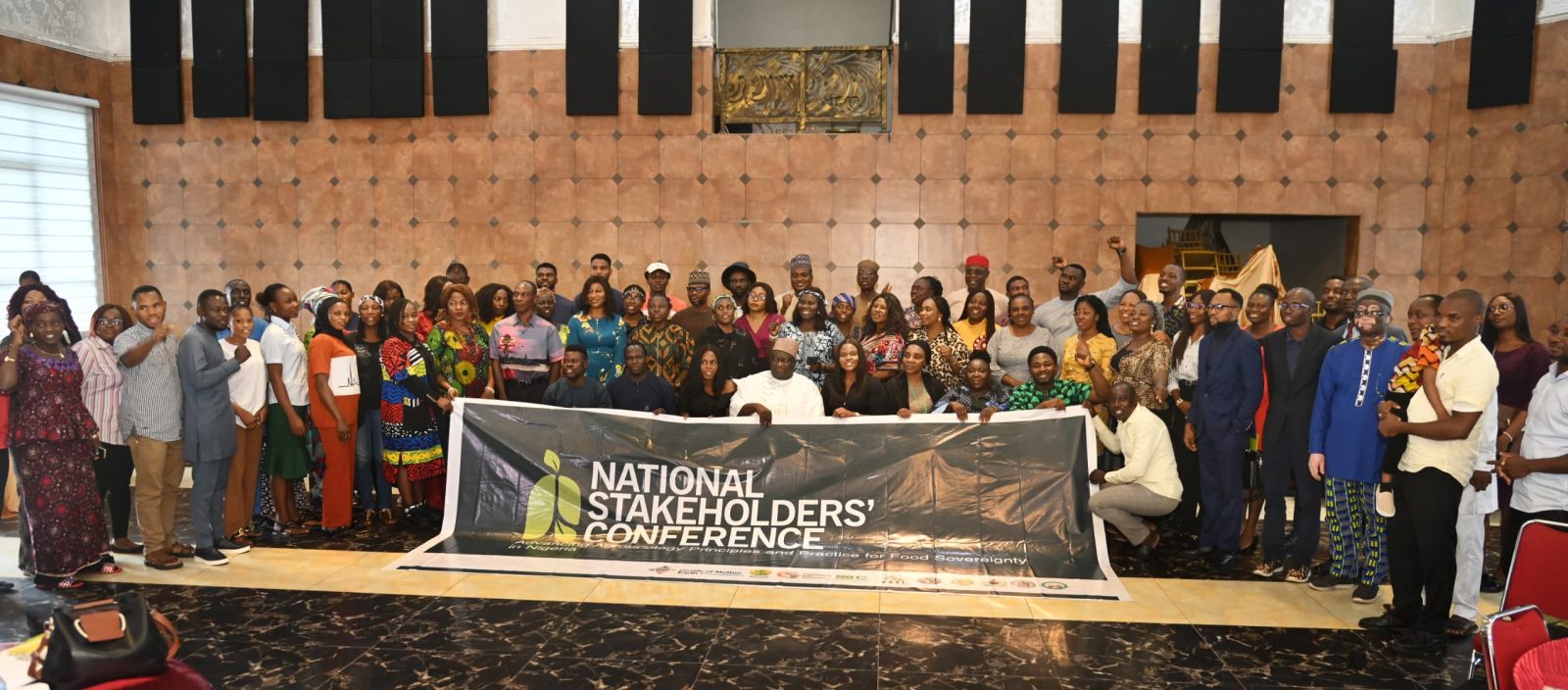Farmers Sovereignty: Create, Promote National Seed Banks- Stakeholders Tell Nigerian Government
July 30, 2025

By Ekemini Simon
Stakeholders made up of farmers, academics, youths, representatives of government agencies, women and Civil Society Organisations (CSOs) have called on the Nigerian government to enact policies to create and promote national seed banks that preserve indigenous seeds and protect farmers’ sovereignty.
The call was made in a communique issued at the National Stakeholders’ Conference on Agroecology held on July 21, 2025 by Health of Mother Earth Foundation (HOMEF).
The gathering had observed that a major barrier to food sovereignty in Nigeria is the spread of GMOs, which creates dependency on multinational corporations for seeds and food production stressing that GMOs also lead to soil degradation through the use of toxic herbicides.
The stakeholders said the goal should not be merely to achieve food security but food sovereignty where healthy food is guaranteed, and the local people are in control of their seed and food systems. They said food sovereignty must take precedence over mere food security.
The stakeholders noted that food security cannot be achieved without local control over food systems, seeds and agricultural processes (food sovereignty). They explained that this can only be achieved by creating policies that protect farmers’ rights and agricultural autonomy.
Participants called on the government at all levels to recognize agroecology as essential for national food sovereignty and agricultural sustainability, and to create a supportive policy framework.
They called on Nigerian citizens to embrace subsistence farming in their homes, support local food systems, and advocate for a healthy food policy. This, they noted, can be done by governments at all levels banning GMOs and promoting/investing in agroecology research and practice for increased food productivity.
All stakeholders to promote structured youth training programmes in agroecology to ensure the intergenerational transfer of indigenous knowledge and sustain Nigeria’s cultural food systems.
Part of the recommendations captured in the communique reads “Academic institutions to integrate agroecology into school curricula and prioritize it within research institutes to deepen knowledge and innovation in sustainable agriculture.
“Government to enact policies to create and promote national seed banks that preserve indigenous seeds and protect farmers’ sovereignty.
“Government and relevant authorities to address growing insecurity and lack of access to land for farmers, particularly women and youth, by ensuring secure, equitable land tenure systems and protection for farming communities.
“Ministry of Agriculture and Food Security to develop and implement a comprehensive national standard for organic and agroecological practices, ensuring quality, safety, and sustainability in production systems.
Government to train and deploy extension workers with specialized knowledge in agroecology to support farmers in adopting sustainable, climate-resilient practices.
“Government to create an enabling environment for marketing and promotion of agroecological produce and product.”
The communique was endorsed by 20 leading organizations, including the Health of Mother Earth Foundation (HOMEF), Kebetkache Women Development and Resource Center, Organic and Agroecological Initiative (ORAIN), Federation of Agricultural Commodity Associations of Nigeria (FACAN), Be the Help Foundation, GMO-Free Nigeria Alliance, among others.
What's Your Reaction?
Excited
0
Happy
0
In Love
0
Not Sure
0
Silly
0






